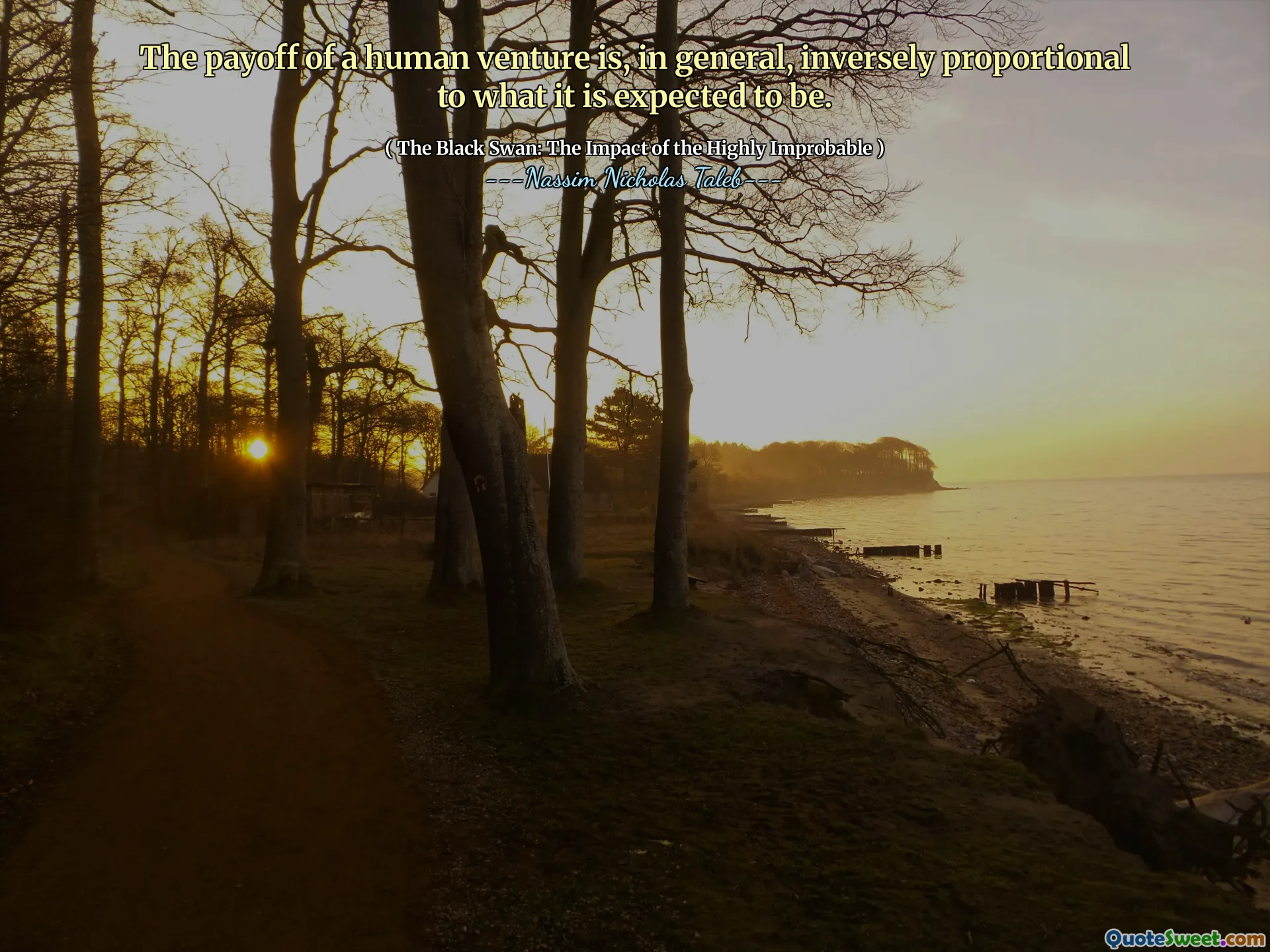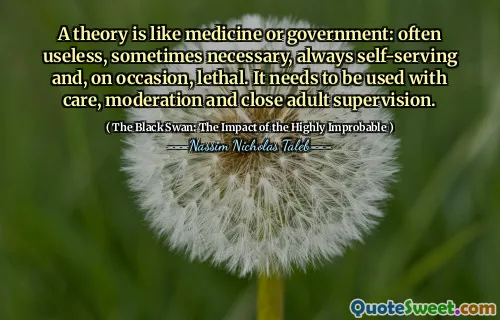
The payoff of a human venture is, in general, inversely proportional to what it is expected to be.
Nassim Nicholas Taleb's quote underscores a profound truth about human endeavors: the outcomes that seem least likely or most improbable often yield the most significant and transformative results. In the realm of history, innovation, and personal achievement, commonly underestimated ideas or efforts frequently lead to extraordinary breakthroughs. This aligns with the concept that initial expectations, whether too high or too low, can be misleading. Human nature tends to seek predictability and certainty, which often limits boldness and experimentation. When we set our sights narrowly based on what we believe is probable, we may inadvertently restrict our potential for extraordinary success. Conversely, ventures that are seen as unlikely or risky tend to be those that can revolutionize industries, societies, or individual lives. Think of inventions that initially faced skepticism but later became ubiquitous, or personal efforts that seemed insignificant but climaxed into life-changing events. Taleb’s insight challenges us to reevaluate our value system: to recognize that the true rewards in life, whether in business, creativity, or personal growth, may lie hidden behind the veil of unpredictability. Appreciating this paradox invites a more daring approach—one that embraces uncertainty not as a risk but as a fertile ground for immense reward. It urges us to pursue ventures despite low probabilities of success, focusing instead on the potential for impact and novelty. Embracing this mindset could lead to a more resilient, innovative, and growth-oriented outlook, ultimately expanding our horizons far beyond what we traditionally deem achievable.











